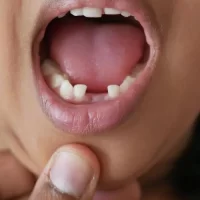
The Best Treatment for a Knocked-Out Tooth: What You Need to Know to Save Your Tooth
- Understanding Tooth Knockouts and Their Causes
- Immediate Steps to Take After Knocking Out a Tooth
- How to Save and Preserve the Knocked-Out Tooth
- Professional Dental Treatment for Knocked-Out Teeth
- Prevention and Safety Tips for Tooth Knockouts
1. Understanding Tooth Knockouts and Their Causes
Getting a tooth knocked out is an alarming experience, whether it happens from an accident, sports injury, or a fall. A knocked-out tooth, also known as an avulsed tooth, can occur when significant force is applied to the mouth, dislodging a tooth from its socket. This type of dental injury often happens in children and athletes but can affect anyone.
Understanding the causes of tooth knockouts is essential because it helps you know when and why certain actions or precautions are necessary. For example, in sports, the risk of tooth injuries can be reduced by wearing protective mouthguards, and for children, being cautious around sharp objects can prevent accidents. However, no matter the cause, it's important to act fast if a tooth is knocked out.
2. Immediate Steps to Take After Knocking Out a Tooth
When a tooth is knocked out, the first few moments are critical for the potential of saving the tooth. The sooner you take action, the higher the chance that the tooth can be reinserted successfully. Here are the immediate steps to take:
- Stay Calm: Panicking will only make the situation more stressful. Take deep breaths and focus on what needs to be done.
- Handle the Tooth Carefully: Avoid touching the root of the tooth. Instead, hold it by the crown (the part that is normally visible in the mouth). If the tooth is dirty, rinse it gently with water or milk, but don't scrub it or remove any tissue attached to it.
- Reposition the Tooth if Possible: If it's safe to do so, try to gently place the tooth back into its socket. Bite down lightly to keep it in place until you reach the dentist.
- Store the Tooth Properly: If you can't reinsert the tooth, place it in a container of milk or saltwater. If milk is unavailable, you can store it in the person’s saliva or even clean water, but never store it in dry conditions as this can damage the cells in the root.
- Get to a Dentist Immediately: Time is of the essence. The sooner you can see a dentist (ideally within an hour), the better the chances of saving the tooth.
By following these steps, you can increase the chances of successfully saving the tooth and ensuring it can be restored in the most optimal way.
3. How to Save and Preserve the Knocked-Out Tooth
Preserving the knocked-out tooth properly is essential in ensuring it can be successfully reinserted by a dentist. The key factor here is to avoid damaging the tooth’s root. Storing the tooth correctly and getting it to a dentist as soon as possible are the most important actions you can take.
If you're unable to reposition the tooth, remember that it's crucial to store it in a fluid like milk or saline, as mentioned earlier. These fluids help keep the cells in the root viable and increase the chances that the tooth can be reimplanted.
In the meantime, you can try to minimize discomfort and prevent further injury by using a cold compress on the affected area to reduce swelling and pain. Avoid placing any pressure on the socket and avoid chewing or biting down on the area until you're seen by a dental professional.
4. Professional Dental Treatment for Knocked-Out Teeth
Once you get to the dentist, they will assess the situation and determine the best course of action for your knocked-out tooth. In some cases, the dentist may be able to reimplant the tooth, particularly if it's done within the first hour. If the tooth is successfully reimplanted, you may need to wear a splint or follow up for additional treatments to ensure it heals correctly.
If the tooth cannot be reimplanted, your dentist will discuss options such as dental implants, bridges, or dentures. In some cases, the dentist may also recommend a root canal to ensure the tooth’s health before any restoration procedures are carried out.
In any case, professional dental care is essential for ensuring the best possible outcome, even if the tooth cannot be saved. A skilled dentist will be able to guide you through the process and discuss the most suitable options for your dental health moving forward.
5. Prevention and Safety Tips for Tooth Knockouts
While tooth knockouts are sometimes unavoidable, there are steps you can take to minimize the risk of injury. Here are some tips to prevent tooth loss:
- Wear a Mouthguard: If you play contact sports or engage in activities that could lead to falls or collisions, a mouthguard is essential. It protects your teeth and reduces the risk of a tooth being knocked out.
- Stay Safe Around Dangerous Objects: Be cautious when handling sharp tools, heavy machinery, or anything that could result in an accident that impacts your face or mouth.
- Protect Your Child’s Teeth: Ensure that your children wear mouthguards during sports or activities, and teach them to avoid rough play that could lead to injury.
By taking these precautions, you can reduce the risk of experiencing a knocked-out tooth in the first place.
If you’ve had a tooth knocked out and need help finding the best treatment options, or if you’re looking for preventive dental products, visit Dentistry Toothtruth for expert advice and the best dental care products.

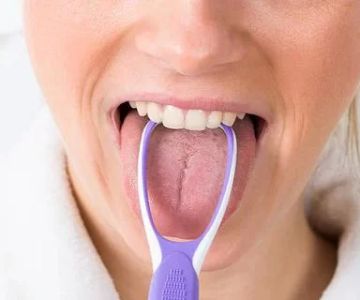
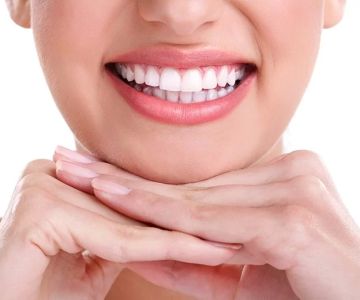
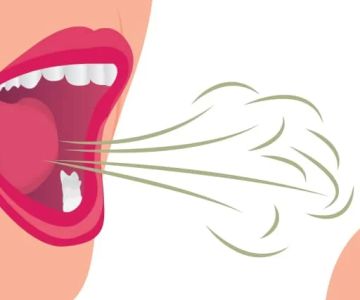
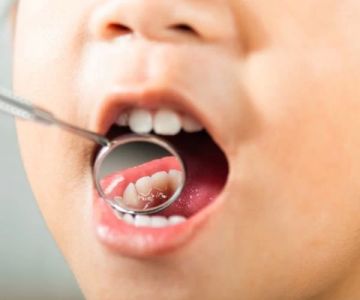


 Sheila Bahadori, DDS, MA/Valley Dental Group
Sheila Bahadori, DDS, MA/Valley Dental Group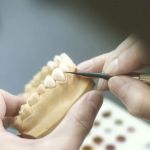 Dr. Sam Saleh
Dr. Sam Saleh Encino Dental Center
Encino Dental Center Family Health Centers of Southern Indiana
Family Health Centers of Southern Indiana Colleen E. Nash, DDS
Colleen E. Nash, DDS Your Downtown Dentistry
Your Downtown Dentistry The Importance of Oral Health Education During Pregnancy for a Healthy Pregnancy
The Importance of Oral Health Education During Pregnancy for a Healthy Pregnancy Why Skipping Dental Checkups Can Lead to Bigger Oral Health Problems
Why Skipping Dental Checkups Can Lead to Bigger Oral Health Problems Advantages of Porcelain Dental Restorations
Advantages of Porcelain Dental Restorations Best Tips for Brushing Your Teeth Properly for Healthy Gums: Essential Techniques for Oral Health
Best Tips for Brushing Your Teeth Properly for Healthy Gums: Essential Techniques for Oral Health How Can Diabetes Cause Tooth and Gum Problems? Preventing and Managing Oral Health Issues
How Can Diabetes Cause Tooth and Gum Problems? Preventing and Managing Oral Health Issues Healthy Habits for Promoting Good Oral Health and Hygiene: Tips for a Healthy Smile
Healthy Habits for Promoting Good Oral Health and Hygiene: Tips for a Healthy Smile